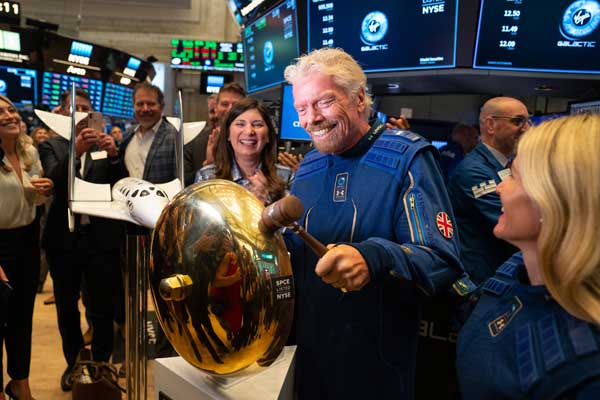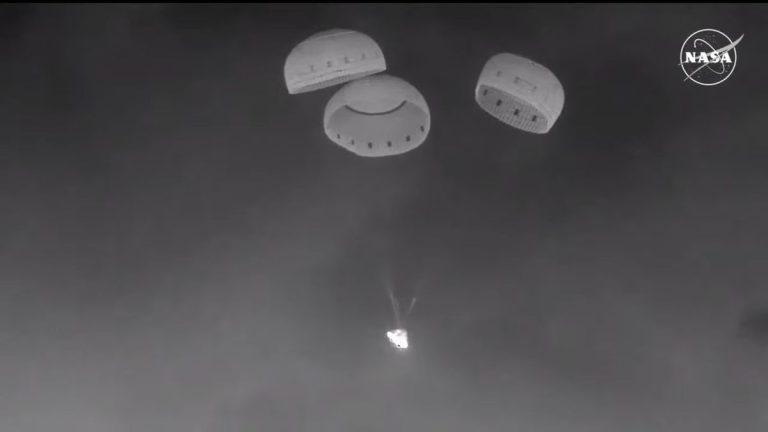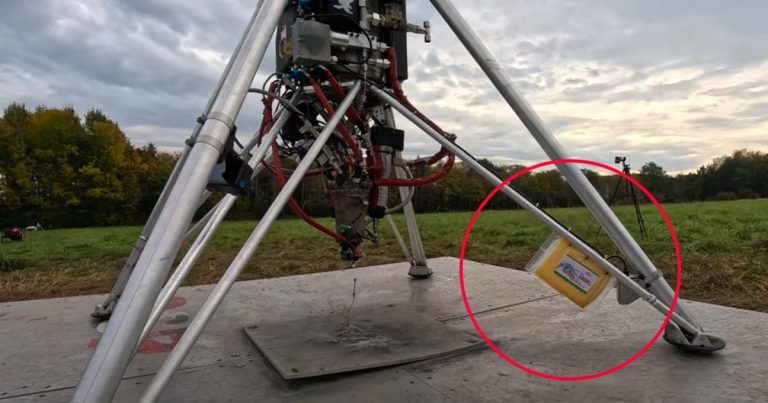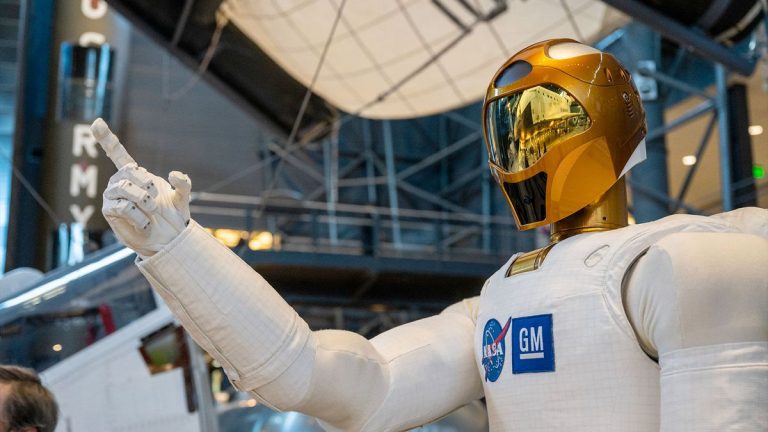
What Hath Chamath Wrought? Less Than SPACtacular Results for Many Investors (Image Credit: Payload)

Three years ago, Silicon Valley billionaire Chamath Palihapitiya and Virgin Chairman Richard Branson kicked off a new era in financing space companies when they took Virgin Galactic public on the New York Stock Exchange (NYSE) through a merger with a special purpose acquisition company (SPAC) called Social Capital Hedosophia (SCH).
A SPAC is a blank-check company that is already traded on a stock exchange. It produces nothing. It’s is an investment vehicle whose sole purpose is to find a company with which to merge, and to take that company public under its own name. A SPAC is typically given two years to accomplish the task, or it must return money to the investors.

A dozen space companies went public on NYSE or Nasdaq via SPACs after Virgin Galactic started trading on Oct. 28, 2019. Maritime Launch Services went public in Canada using a similar mechanism. Last month, Intuitive Machines announced plans to go public through a SPAC.
These deals have injected billions of dollars into the companies. SPACs allow companies to avoid what Branson has called the “rigmarole” of undertaking a traditional initial public offering. SPAC supporters have talked about “democratizing” access to privately-held technology companies.
Critics have called them a “joke” on average retail investors, who are left with losses when share prices of unprofitable companies inevitably decline. (About which, more later.)
SPACs have allowed big investors and company owners to profit. Palihapitiya, who is known as the king of SPACs, turned his $100 million personal investment in Virgin Galactic into a $213 million profit by selling shares worth $313 million. Palihapitiya continues to own shares in the company indirectly.
Branson has sold more than $1 billion in shares since the first day of trading. He continues to be the company’s biggest shareholder at 11.9 percent, down from just over 50 percent when trading began three years ago.
The Retail Experience
The experience for many retail investors has been less than SPACtacular. Every one of the space companies that went public by merging with a blank check company is currently trading lower than what it was at its debut. In most cases, significantly lower.
Space Companies That Went Public Through SPACs
2019-22
| Company | SPAC | First Trading Day | Opening Share Price | High | After Hours 9/30/22 |
|---|---|---|---|---|---|
| Arqit (NAS: ARQQ) | Centricus Acquisition Corp. | Sept. 7, 2021 | $9.25 | $41.52 (9/23/21) | $5.83 |
| Astra Space (NAS: ASTR) | Holicity, Inc. | July 1, 2021 | $12.30 | $16.95 (7/2/21) | $0.64 |
| AST SpaceMobile (NAS: ASTS) | New Providence Acquisition Corp. | April 7, 2021 | $11.63 | $15.48 (6/30/21) | $7.20 |
| BlackSky (NYS: BKSY) | Osprey Technology Acquisition Corp. | Sept. 10, 2021 | $11.80 | $13.20 (9/16/21) | $1.55 |
| Momentus (NAS: MNTS) | Stable Road Acquisition Corp. | Aug. 13, 2021 | $10.85 | 12.87 (9/7/21) | $1.37 |
| Planet Labs (NYS: PL) | dMY Technology Group, Inc. IV | Dec. 8, 2021 | $11.25 | $11.65 (12/8/21) | $5.50 |
| Redwire (NYS: RDW) | Genesis Park Acquisition Corp. | Sept. 3, 2021 | $10.70 | $16.98 (10/25/21) | $2.38 |
| Rocket Lab (NAS: RKLB) | Vector Acquisition Corporation | Aug. 25, 2021 | $11.58 | $21.34 (9/9/21) | $4.13 |
| Satellogic (NAS: SATL) | CF Acquisition Corp. V | Jan. 26, 2022 | $9.19 | $10.92 (5/4/22) | $4.58 |
| Spire (NYS: SPIR) | NavSight Holdings, Inc. | Aug. 17, 2021 | $10.25 | $19.50 (9/22/21) | $1.12 |
| Terran Orbital (NYS: LLAP) | Tailwind Two Acquisition Corp. | March 28, 2022 | $12.69 | $12.69 (3/28/22) | $1.85 |
| Virgin Galactic (NYS: SPCE) | Social Capital Hedosophia | Oct. 28, 2019 | $11.79 | $62.80 (2/4/21) | $4.78 |
| Virgin Orbit (NAS: VORB) | NextGen Acquisition Corp. II | Dec. 30, 2021 | $8.525 | $11.28 (1/11/22) | $3.19 |
If you bought Virgin Galactic shares at $11.79 on the first day of trading, you would have pocketed a significant profit if you had sold them at their peak of $62.80 on Feb. 4, 2021. Shares were trading at $4.78 after hours on Friday, so it’s likely that a significant number of shareholders’ investments are under water.
The reason for Virgin Galactic’s sharp decline is the company’s failure to fly any paying customers on suborbital flights. Before going public, Virgin Galactic and SCH projected that SpaceShipTwo would begin flying passengers in June 2020. The schedule has slipped three years over the past three years to mid-2023. In the meantime, the company has lost more than $1 billion.
Branson’s other space company, Virgin Orbit, went public at the end of 2021 at an opening price of $8.525. It’s now trading at $3.19 after peaking at $11.28 last January. The company has completed four launches since January 2021, with another launch scheduled from Cornwall in England within the next month or so.

The story is similar with the other space SPACs. Launch provider Astra Space is in the worst shape as its stock has sunk to $0.64 after peaking at $16.95. The decline is a result of a series of launch failures that caused the company to abandon its Rocket 3.3 booster and suspend flights for the rest of the year. Astra is working on a larger launcher named Rocket 4.0.
The stock of Terran Orbital, which manufactures small satellites, never rose above its opening price of $12.69. It was trading at $1.85 after hours on Friday.
“Buy on the dip,” the saying goes. Space SPACs have certainly dipped. They could be a significant bargain for investors. The question is whether the companies are capable of delivering on the revenues and profits they projected when they began publicly trading.
Time will tell.
The Bubble Pops
Meanwhile, the SPAC king has concluded that blank check companies have run their course for now. On Sept. 20, Palihapitiya announced that he was returning funds to investors in two SPACs, Social Capital Hedosophia Holdings Corp VI and Social Capital Hedosophia Holdings Corp VI.
“A combination of factors made it very difficult to find a company at a reasonable valuation and margin of safety. Ultimately, to get a deal done would have required us stretching on price or buying an inferior asset – neither were things we felt comfortable doing,” he said in a blog post. “We saw resistance from management teams who either weren’t prepared for or didn’t want to face the public markets in the face of current volatility.”
In other words, the bubble had popped. The only other thing to do was declare victory.
“Looking back, I am proud of the companies we helped bring public – Virgin Galactic, Opendoor, Clover Health, SoFi, ProKidney, and Akili. They are well positioned to bring innovation to each of their end markets over the next several years, and I am proud we were able to have played a role in each of their respective journeys,” Palihapitya wrote.
With the exception of ProKidney, each of the companies he mentioned above is trading significantly below both its high and its opening price on the first day of trading.
Other Reading
Wall Street Thinks Most SPACs are a Joke








